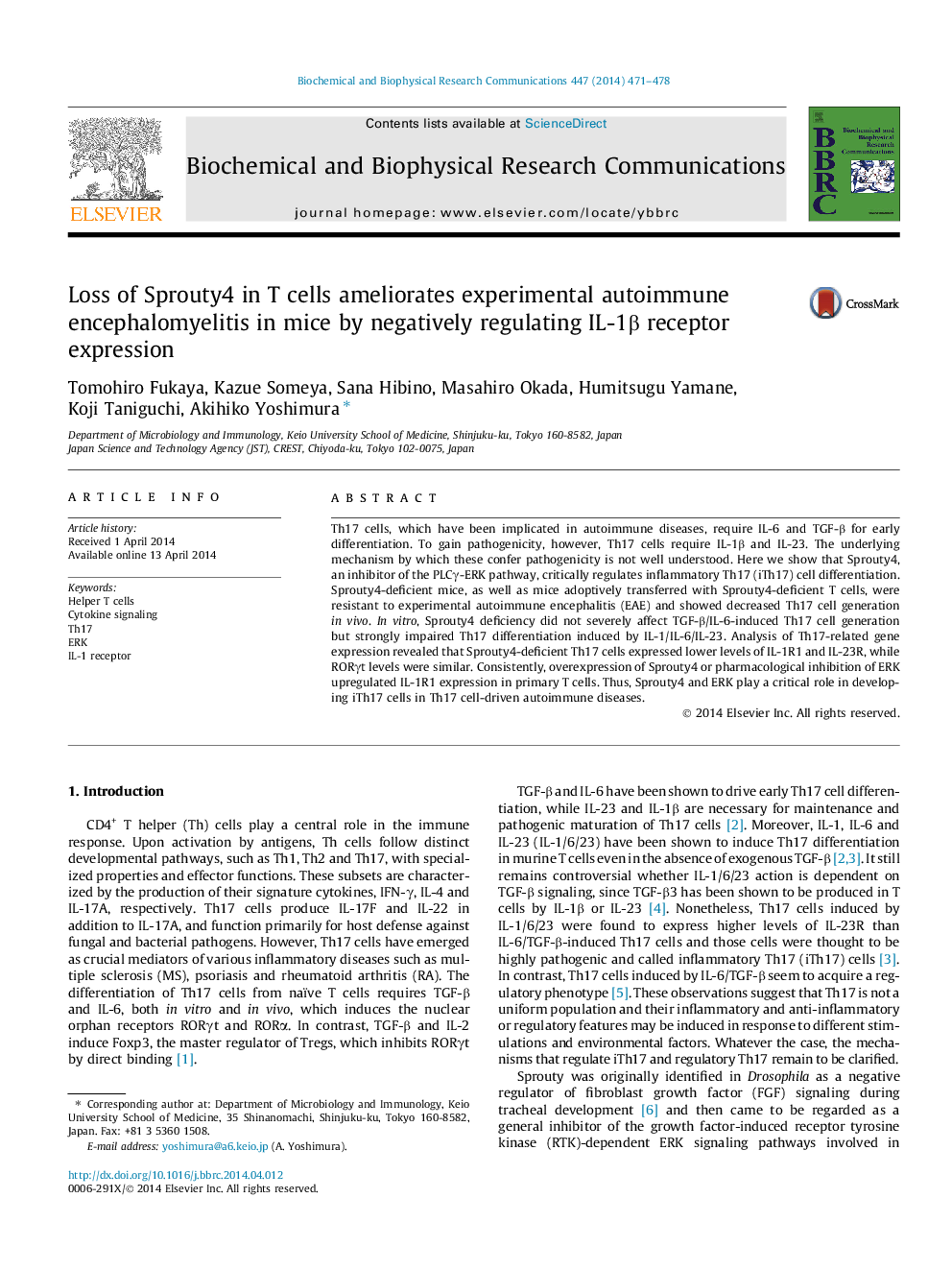| Article ID | Journal | Published Year | Pages | File Type |
|---|---|---|---|---|
| 10755490 | Biochemical and Biophysical Research Communications | 2014 | 8 Pages |
Abstract
Th17 cells, which have been implicated in autoimmune diseases, require IL-6 and TGF-β for early differentiation. To gain pathogenicity, however, Th17 cells require IL-1β and IL-23. The underlying mechanism by which these confer pathogenicity is not well understood. Here we show that Sprouty4, an inhibitor of the PLCγ-ERK pathway, critically regulates inflammatory Th17 (iTh17) cell differentiation. Sprouty4-deficient mice, as well as mice adoptively transferred with Sprouty4-deficient T cells, were resistant to experimental autoimmune encephalitis (EAE) and showed decreased Th17 cell generation in vivo. In vitro, Sprouty4 deficiency did not severely affect TGF-β/IL-6-induced Th17 cell generation but strongly impaired Th17 differentiation induced by IL-1/IL-6/IL-23. Analysis of Th17-related gene expression revealed that Sprouty4-deficient Th17 cells expressed lower levels of IL-1R1 and IL-23R, while RORγt levels were similar. Consistently, overexpression of Sprouty4 or pharmacological inhibition of ERK upregulated IL-1R1 expression in primary T cells. Thus, Sprouty4 and ERK play a critical role in developing iTh17 cells in Th17 cell-driven autoimmune diseases.
Related Topics
Life Sciences
Biochemistry, Genetics and Molecular Biology
Biochemistry
Authors
Tomohiro Fukaya, Kazue Someya, Sana Hibino, Masahiro Okada, Humitsugu Yamane, Koji Taniguchi, Akihiko Yoshimura,
